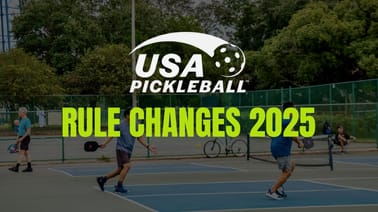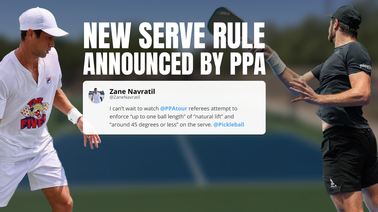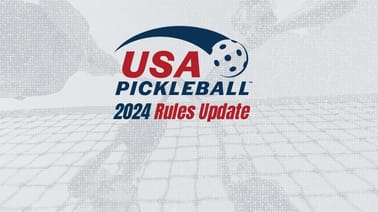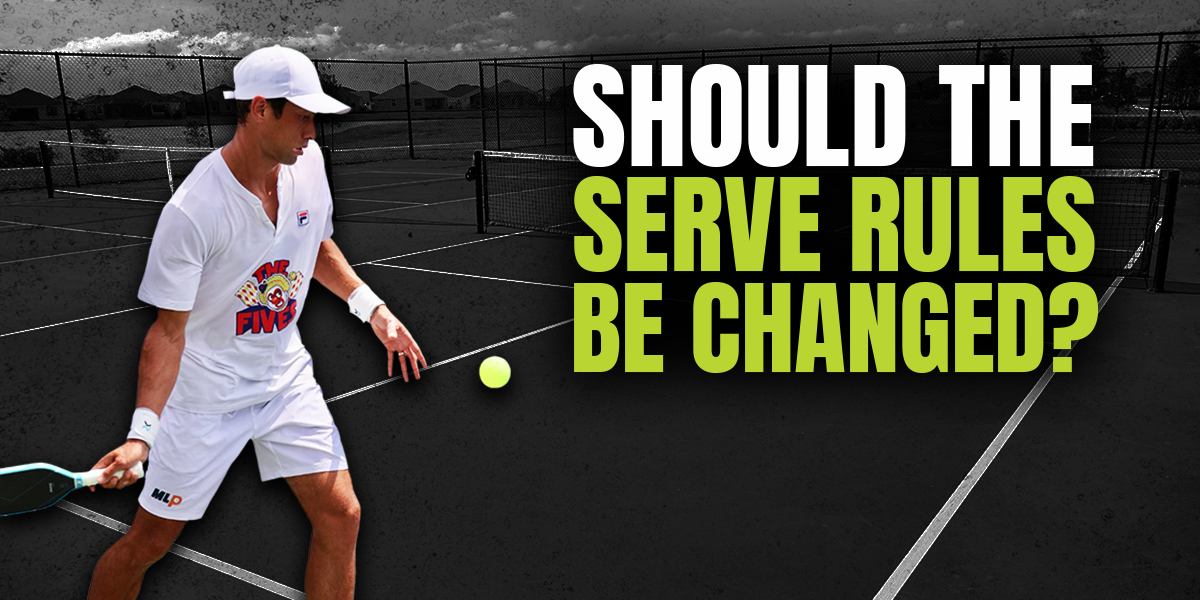
Should we change pickleball’s serve rules?
For any rule change, it seems logical to identify a problem and then work to find a solution.
Problem No. 1 - Serves have too much impact
The first problem is that, allegedly, serves have too much of an impact on the professional game. Is there data to support this?
Prior to the 2024 season, Major League Pickleball eliminated the contact height requirement, so if there is a place where serves are disproportionately affecting the game it would be MLP, right?
Well, let’s compare data from MLP for 2023 and 2024. Real Clear Stats found that the serving team won 42.65 percent of the 34,615 rallies in 2023. In 2024 to date, the serving team has won 42.64 percent of the 22,986 rallies.
The data does not suggest that serving is breaking the game, but maybe the fans think so?
I recently asked my X followers "Are massive serves a problem in professional pickleball?" A total of 90 percent of the 626 people answered "no" and 10 percent answered "yes."
Are massive serves a problem in professional pickleball? @Pickleball @PPAtour
— Zane Navratil (@ZaneNavratil) August 16, 2024
This is possibly skewed based on me polling my own followers, however one look through the comment section on recent PPA posts would indicate that the majority of people do, in fact, hold the same view.
Problem No. 2 - Serve rules are unenforceable
The second problem is that the service rules are unenforceable. Under USA Pickleball rules, contact must be made below the waist, the paddle must be moving upwards at the point of contact, and the paddle head must be below the level of the wrist at contact.
None of these things, unless there is an egregious violation, are enforceable by a referee in real time. I agree with this, and I think you’d be hard pressed to find a professional player or referee that would feel otherwise.
Solution No. 1 - Add a service box
The most recent proposal that has been circulating around the internet is to place an additional line four feet inside the baseline.
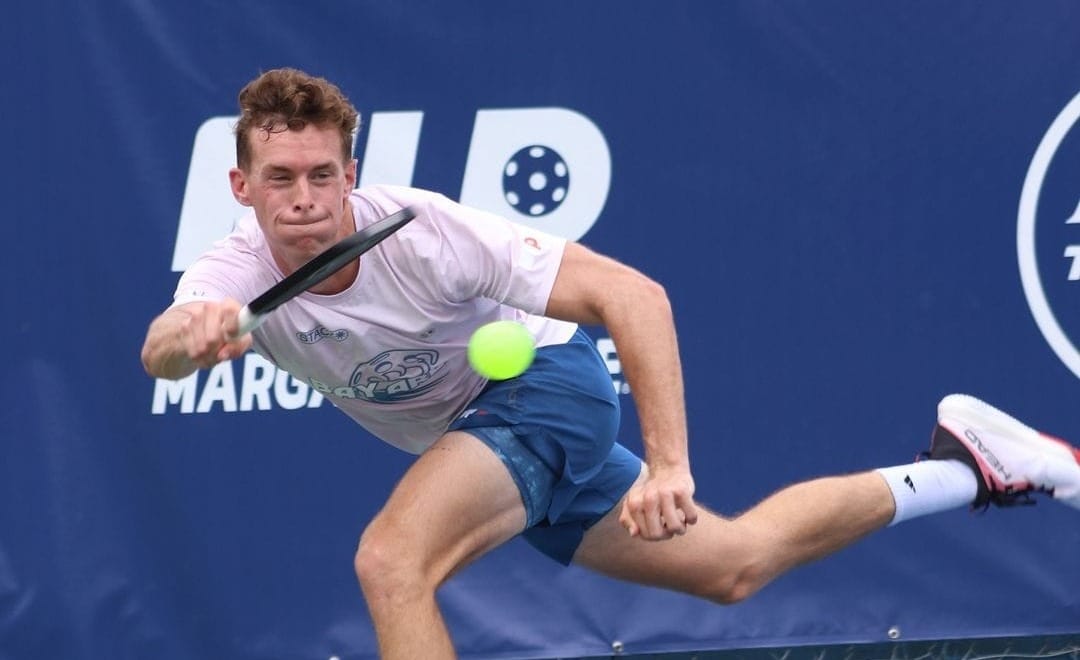
If a serve lands beyond the line, it would be considered out. This change would do nothing to improve the enforceability of the service rules. It would, however, reduce the impact of the serve, a problem that exists neither in fact nor opinion.
What are the side effects? Inevitably, returns would become deeper and more effective. For those citing a lack of adequate space to return serves, the problem will simply be transferred from the returner back to the server, who is already at a disadvantage.
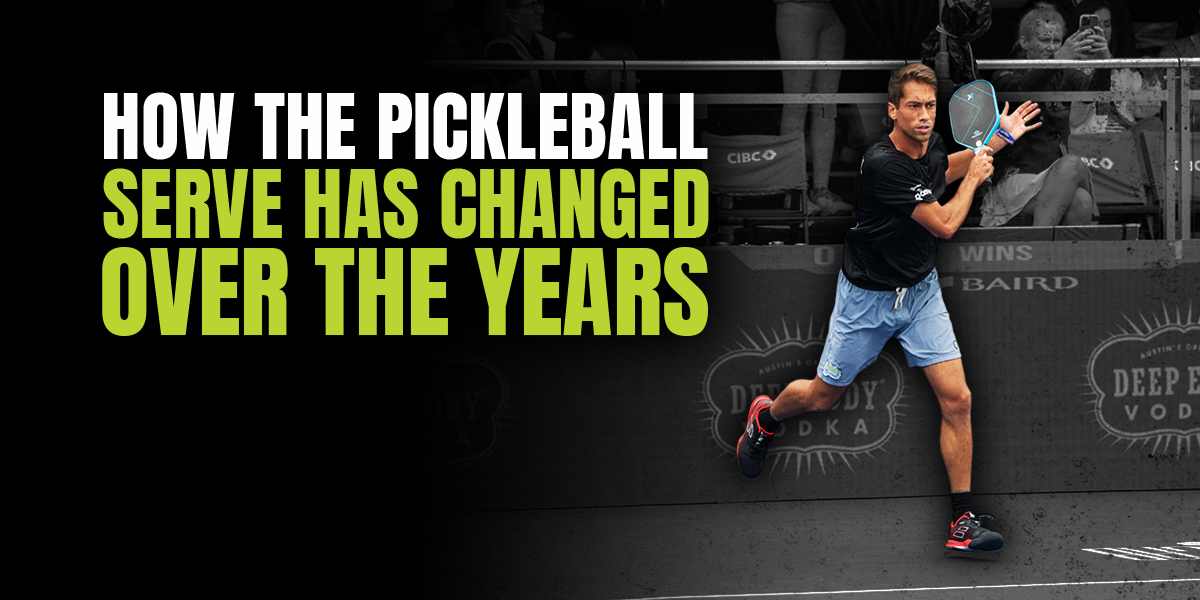
Deeper returns would push the server back into the fence, returners would have a much easier time getting to the kitchen, and the percentage of points won on serve would materially decline. This would result in fewer kitchen rallies, not more.
Every court would need to add an additional line, and if this is a rule that’s only for professional play, casual viewers would wonder why pros are subjected to stricter service rules. If we’re concerned about optics, does making a serve look more like a feed help or hurt the optics of a professional game?
Insane, if true. Guys, it’s an underhand serve https://t.co/J1VCAxggk6
— Zane Navratil (@ZaneNavratil) August 14, 2024
Solution No. 2 - The drop serve
If we utilized the drop serve, a referee would only need to police one thing: is the hand stationary at the time of the release of the ball? All subjectivity regarding contact height, swing angle, and wrist position is eliminated. The second problem addressed above would be immediately solved.
The highest point of contact on the drop serve is significantly lower when compared to an out-of-the-air serve. When using the traditional serve, I can make contact as high as the navel, but a drop serve will never bounce higher than mid-thigh. With a lower contact point, the serve would be less impactful.

The main hesitation behind implementing the drop serve is, again, optics.
"The drop serve looks stupid." I have several questions for people using this line or argument:
- Does the drop serve look stupid when utilized in padel, Europe’s fastest growing sport?
- Does this drop serve look stupid?
Does the drop serve look that dumb? pic.twitter.com/XBAwRQbt7Z
— Zane Navratil (@ZaneNavratil) August 15, 2024
- Does a drop serve look stupider than feeding a ball to your opponent, as proposed with the service box?
What if we just started the point with the return? @Pickleball
— Zane Navratil (@ZaneNavratil) August 14, 2024
My take on the situation
Data suggests that servers are not winning a disproportionate amount of points, and fans don’t think that the serve is game-breaking either.
If we want a serve rule that is enforceable, the drop serve is the obvious solution. If we’re not ready to implement the drop serve, my suggestion would be to enable referees to more strictly attempt to enforce the current serve rules.
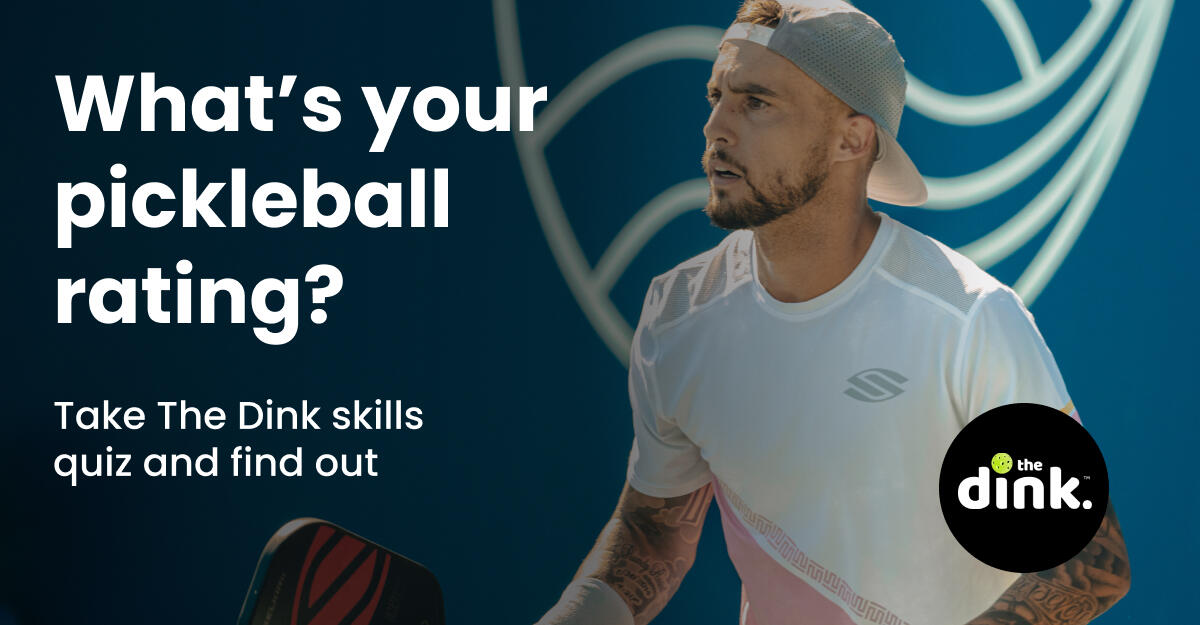
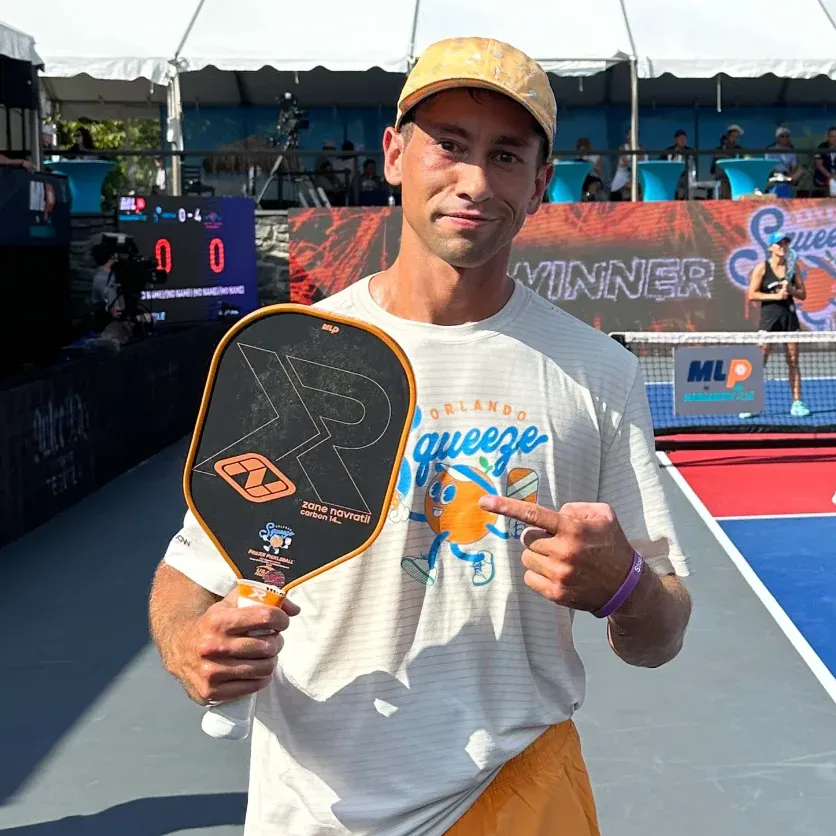
Zane Navratil
Zane is a professional pickleball player both on the PPA Tour and Major League Pickleball. He is also the co-host of the No. 1 pickleball podcast PicklePod.
Love Pickleball? Join 100k+ readers for free weekly tips, news & gear deals.
Subscribe to The DinkGet 15% off pickleball gear at Midwest Racquet Sports




